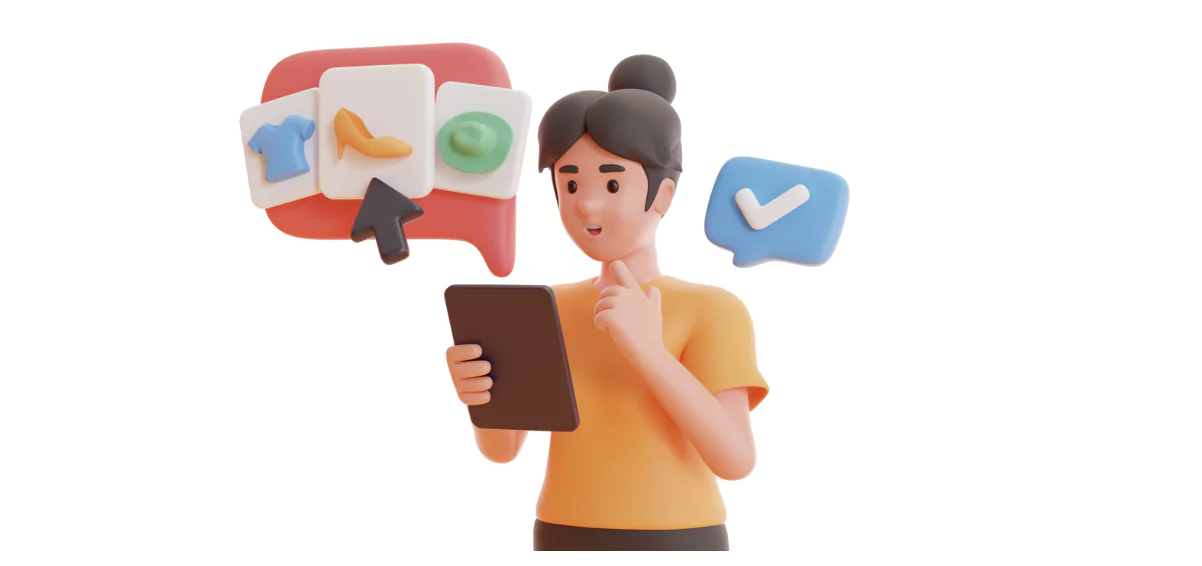Product experience is a major part of the complete overall user experience of the users with the product especially. It is the measure of complete user journey when they start using the product to the time they quit using it. Product experience plays a major role in the success of a product in the market.
While developing a product and distributing it in the market it is important to be very well aware of the product experience and make improvements accordingly. In this blog, we will learn more about product experience and its role in product management.
What is Product Experience?
Product experience is a sub-branch of User Experience which interprets the user’s feelings and feedback when interacting with the features of an application in the digital environment. Product experience also known as PX is the entire customer journey through the product something very similar to User Experience (UX).

There are various factors on which the product experience of a product or application is measured, such as usability, accessibility, user interface, features, platform, architecture, and more. Product experience is the reason why you like one racing game more than the other available online.
Why Product Experience Is Crucial?
The entire success and growth of a business depends on their product and the entire user experience of the users visiting the application. The product experience subcategory which ensures the application of the user’s experience. With good overall experience of the product more usage, trust and retention can occur.
The product experience is checking the situations, such as onboarding experience along with the ease of use. After carefully analysing the product experience metrics you can easily decide whether or not to continue with the services and make improvement in the existing applIcation.
Who Works with Product Experience of Application?
The team of product management with product managers leading the team complete the product experience analysis to decide whether user experience of the product is good and a better product market fit. This responsibility also contains some graphic designers, ux designers who can help in analysis;

The main responsibility of the team is to find the silos and make sure to eliminate any issue in the product which is driving the users away. Customer feedback can be collected using support channels like customer support, account management and sales of the product are important ways of collecting product experience.
Good marketing is also a key factor in product experience which drives the users ahead in the journey without wanting to quit, such as content generation, messaging, and more.
Elements of Managing the Product Experience

Product teams manage the complete product experience using various tools and using advanced concepts. Let us look at some of the important elements in product experience.
1. Feedback
Users feedback is a very important element of product experience where the users express how they feel about the product. It can be collected using surveys, site visits, interviews, and more.
2. Prioritization
The prioritisation is completely based on the product which organisation is aiming for. All product development requires prioritisation to get completely familiar with what to make and at what time based on the users needs and requirements.
3. Analytics
With plenty of data available online companies can easily conduct analysis to find out people preferences, choices, and what is trending in the market. With analytics users behavior is analysed in various sets of ways. This data driven decision making can help you get more user friendly and usable products in the market.
4. User Onboarding
This step marks the first impression which must be clear, engaging and helpful. It guides the users for their first outstanding experience with the product and must be taken care of especially. Good onboarding increases the chance of users satisfaction and trust with the product.
5. Usability
Products must have features which are usable and beneficial especially to targeted groups of people. Hence, regular testing, feedback collection help in improving the features of the product to match users needs.
6. Customer Support
All the major efforts must be given to provide users with integrated help centers, chatbots, and live support to ensure that their problems or issues do not go unattended. Users’ issues must be treated with priority and solved as soon as possible.
Benefits of Product Experience

Product experience provides a series of benefits, let us check some of the most important product experiences.
1. Increases User Retention
If your product is good it encourages users to return again to your platform and spend their money to buy your product. It can go a long way if your product maintains the market fit.
2. Drives Customer Loyalty
Product experience is an important criteria in building an emotional and trusted connection with the users. When your product meets the demand of the people then there comes a trust factor and expectations with your brand increases. This trust turns into loyalty which also sometimes ignores some occasional and random delays, faults, or bugs.
3. Boosts Word-of-Mouth Growth
If your product is good then the chances of organic growth increases by ten fold. Along with your loyal and long term customers, people who are new and are impressed with your product can recommend your products to their friends, post on social media or leave positive reviews on the platform. This organic promotion can sometimes be more powerful and profitable compared to paid marketing.
4. Reduces Churn and Support Costs
A product that is intuitive and enjoyable reduces the need for support and guidance every time. Users can easily find what they’re looking for, complete tasks, and solve problems on their own which leads to fewer customer support requests. So by improving PX, you directly cut down on churn and reduce the operational burden on your support team.
5. Improves Customer Satisfaction and Reviews
With a good product people’s point of view on your brand changes with positive emotions leading to customer satisfaction, building trust and good reviews. Users who are satisfied with your product will give you 100% recommendation and ratings and promote your product for free.
Read More: How to Ace Product Management Interview In India
6. Enhances User Engagement and Feature Adoption
When users enjoy interacting with your product, they tend to explore more. A thoughtful PX encourages them to try new features, dig deeper into your product’s capabilities, and integrate it more into their daily lives.
This deeper engagement not only increases the value they get from the product, but also improves the chance of upselling, cross-selling, or long-term retention.
7. Gives You a Competitive Advantage
In today’s competitive market where there are a number of products available a product that feels better, is usable and trustable will more likely attract the attention of the users as compared to the other alternatives no matter even if they are of low cost. When you provide the quality the competitors will have a tough time to match your level of trust and features in their product.
Learn Product Management with PW Skills
Master industry oriented skills in Product management with the power of Generative AI in PW Skills Product Management Course. Get an advanced in-depth training based on agile methodologies and conduct market analysis, strategic planning, and more to design and maintain a high valued product in the market.
Build a job ready profile with PRD from the scratch and work on a capstone project to strengthen your portfolio. Prepare for your interview with guidance from dedicated mentors who will also help you in resume building with dedicated sessions. Get industry recognised certifications and discover a wide range of opportunities in Product management only at pwskills.com
Product Experience FAQs
Q1. What is Product Experience?
Ans: Product experience is a sub-branch of User Experience which interprets the user's feelings and feedback when interacting with the features of an application in the digital environment.
Q2. Why is Product Experience important?
Ans: Product experience ensures that the users are satisfied with your product and it help build good product experiences, increase usage, build trust, promote retention, and much more which help a business get to their objectives easily.
Q3. Is user experience and product experience the same?
Ans: Product experience is a sub part of the user experience where the efforts and priority is given on products and their overall experience with the users. User experience is a broad term which ensures user satisfaction on all levels.
Q4. What are some elements of product experience?
Ans: Feedback, Prioritization, analytics, user onboarding, usability, customer support are some of the major elements of product experience.

